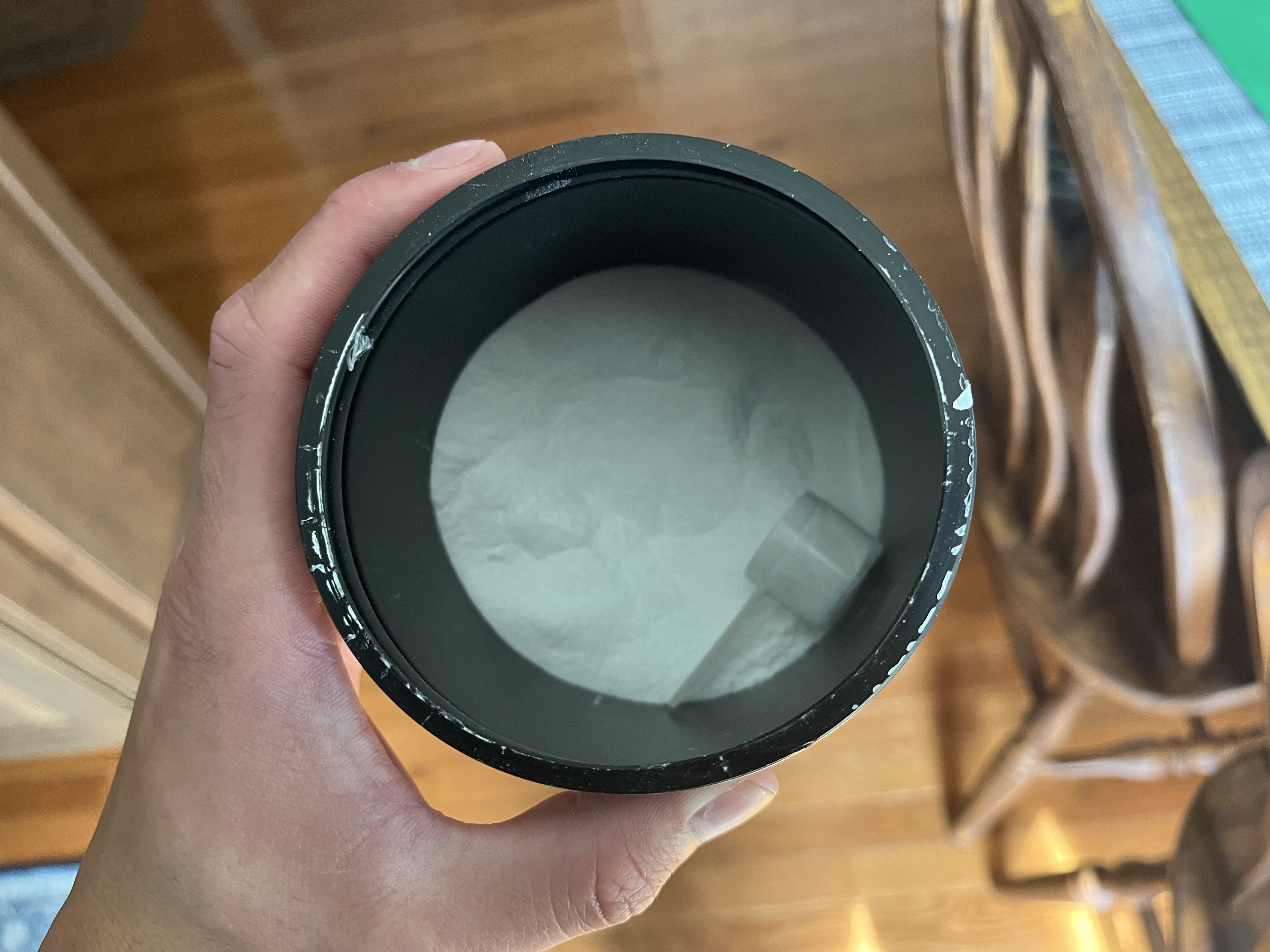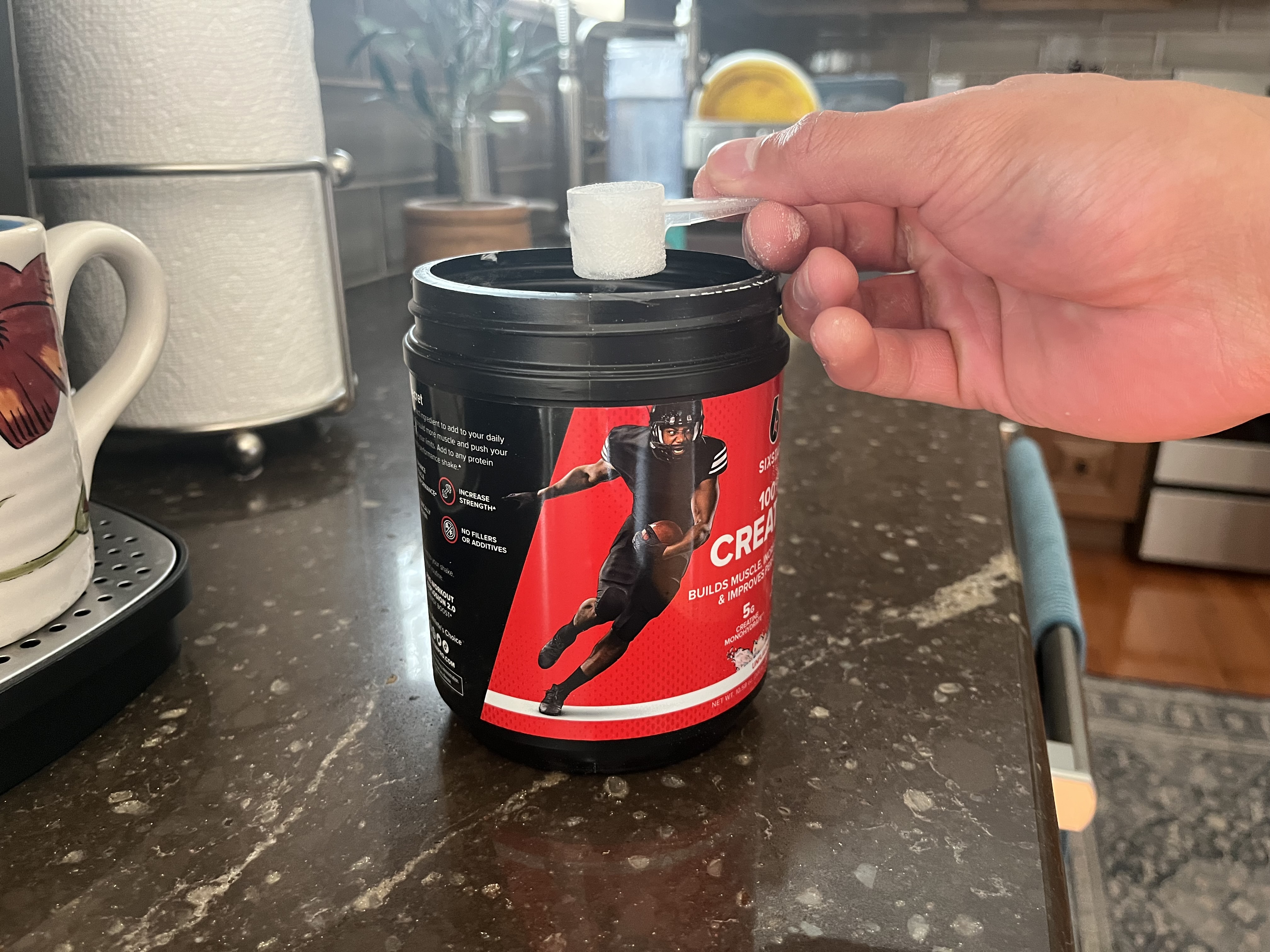Is Creatine a Banned Substance? The Truth Revealed
Written by The Boostcamp Editors
Is creatine a banned substance? Or an effective supplement for gym goers and athletes?
If you are a fitness enthusiast, whether you enjoy powerlifting, the sport of bodybuilding, or maybe even weightlifting, then you might have heard about the popular supplement, creatine. Creatine is a naturally occurring compound found in our muscles, and it's also consumed as a supplement by many athletes and bodybuilders. But what exactly is creatine, and how does it impact our bodies? Many people think that it is a steroidal compound, has nasty side effects, and is banned by WADA, but is that true at all?
Our team at Boostcamp is going to take a deep dive into the science behind creatine and its role in athletic performance. We will also explore recommended dosage and administration of creatine, assess the safety concerns associated with its use, and answer the question on every athlete's mind: does the use of creatine lead to a ban in sports?
Understanding Creatine

Creatine is a popular supplement used by athletes and bodybuilders, plays a vital role in enhancing athletic performance. This natural compound is found in the body and is responsible for supplying energy to the muscles during high-intensity workouts. Extensive research suggests that creatine supplementation can lead to increased muscle mass and improved exercise performance. Understanding the science behind creatine and its impact on the body is crucial for those looking to maximize their training efforts.
Creatine use has become very common in sports nutrition and weight training due to its ability to improve strength and power. In recent years, there have been concerns about the safety of creatine, leading to discussions about its legality and potential implications in athletic performance. However, it's important to note that creatine is not classified as a banned substance by organizations like the Olympic Games or the United States Food and Drug Administration.
By incorporating creatine into their training regimen, athletes can effectively enhance their lean muscle mass and overall performance. It's worth noting that individual responses to creatine may vary, and it's always recommended to consult with a healthcare professional or sports nutritionist before starting any new supplement or drug administration. With proper understanding and responsible use, creatine can be a valuable tool for athletes looking to optimize their training and achieve their performance goals.
The Science Behind Creatine
As stated above, creatine is a naturally produced nitrogenous organic acid in the body. It is synthesized from amino acids such as glycine, arginine, and methionine by the liver and kidneys. The body stores creatine in the muscles as phosphocreatine, which can rapidly convert into ATP (adenosine triphosphate) to provide energy during intense physical activity. When supplementing with creatine, the levels of phosphocreatine in the muscles increase, resulting in improved energy availability and enhanced performance. Numerous studies have proven the effectiveness of creatine supplementation in increasing muscle strength and power.
Creatine's role in sports nutrition and weight training has been widely recognized. However, it is essential to note that creatine is not considered a banned substance by major sports organizations, including the International Olympic Committee. While some individuals may confuse creatine with steroids or believe that it could result in a positive drug test (which can get you banned from competitions), it is important to clarify that creatine is a legal and accepted supplement for athletes.
In recent years, the Food and Drug Administration (FDA) has approved creatine for use as a dietary supplement. This acknowledgment highlights its safety and efficacy when used as directed. Creatine is available in various forms, including powders and capsules, making it convenient for users. It is recommended to consult with a healthcare professional or sports nutritionist before incorporating creatine supplementation into one's regimen to ensure proper usage and avoid any potential contraindications.
Creatine in Sports: A Common Practice

Creatine is not just a supplement that is used for strength athletes and bodybuilders; the use of creatine as a sports supplement has gained widespread popularity among athletes and fitness enthusiasts alike. Many professional athletes incorporate creatine supplementation into their training routines to optimize their performance. This practice is particularly common in sports that require explosive power and strength, such as weightlifting and sprinting. It's important to note, however, that there are certain considerations and implications associated with the use of creatine in sports.
Understanding the impact of creatine on athletic performance is crucial for both athletes and coaches. By increasing muscle phosphocreatine levels, creatine supplementation enhances energy availability during intense physical activity, leading to improved performance. However, it's essential to follow recommended dosages and administration guidelines to ensure safe and effective use.
In recent years, there have been concerns about the potential for positive tests for banned substances due to the use of creatine, but as stated above, creatine itself is not a banned substance and is legal for use in sports. However, it's always important to verify the regulations of specific sporting organizations or events to ensure compliance.
Overall, creatine use in sports is a common practice that can offer performance benefits when used correctly and responsibly. Understanding the science behind creatine and its effects on the body is vital for athletes and coaches in making informed decisions about its use.
The Implication of Creatine Use in Athletic Performance
The use of creatine in athletic performance has significant implications. Research has consistently shown that creatine supplementation can improve performance in high-intensity, short-duration activities. It has the potential to enhance muscle strength, power, and sprint performance, making it particularly beneficial for athletes participating in sports that require repeated bouts of intense exercise, such as team sports. However, it's important to note that not all athletes may experience the same performance enhancements. The individual response to creatine varies, and factors such as genetics, training status, and diet can influence the effectiveness of supplementation.
When incorporating creatine into an athlete's training regimen, it is crucial to consider their specific needs and goals. Each athlete is unique, and their response to creatine will differ. It's essential to tailor the dosage and duration of creatine supplementation based on individual requirements. This personalized approach ensures that athletes maximize the benefits while minimizing any potential risks associated with creatine use.
In recent years, there have been concerns about the safety and legality of creatine as a performance-enhancing substance. Again, it is always good to clarify that creatine is not considered a banned substance by reputable sporting organizations such as the World Anti-Doping Agency (WADA). Creatine is a naturally occurring compound found in food sources like white meat and certain mollusks.
In summary, creatine supplementation can have significant implications for athletic performance, particularly in high-intensity, short-duration activities. However, individual responses may vary, and it is crucial to assess each athlete's specific needs and goals when incorporating creatine into their training regimen. By taking a personalized approach, athletes can optimize the benefits of creatine while ensuring their safety and compliance with anti-doping regulations.
How is Creatine Used?
Creatine is commonly consumed as a dietary supplement in powder, capsule, or tablet form. To saturate muscles, the loading method involves taking a higher initial dose of creatine. Afterward, a maintenance dose is taken to maintain increased creatine levels. Consuming creatine with carbohydrates can enhance absorption. Seek guidance from professionals for proper usage.
Recommended Dosage and Administration of Creatine
When it comes to the recommended dosage and administration of creatine, there are several factors to consider. The dosage can vary depending on factors such as body weight and training goals. Typically, a loading phase is recommended, which involves consuming 20-25 grams of creatine per day for 5-7 days. This helps to quickly saturate the muscles with creatine.
After the loading phase, a maintenance dose of 3-5 grams per day is usually sufficient to maintain elevated creatine levels in the body. It's important to note that staying hydrated is crucial when using creatine, as it may cause water retention in the muscles. This can be easily managed by drinking plenty of water throughout the day.
In order to prevent dependence and allow the body to regulate its natural creatine production, cycling creatine supplementation is recommended. This means taking breaks from creatine use after a certain period of time.
By following these recommended dosage and administration guidelines, individuals can safely and effectively incorporate creatine into their fitness regimen. It's always a good idea to consult with a healthcare professional or sports nutritionist for personalized guidance on creatine use.
Is Creatine Safe for Regular Consumption?
Despite the misconceptions surrounding creatine, it is generally considered safe for regular consumption. Extensive research has shown its efficacy and safety when used as directed. However, individuals with pre-existing conditions or kidney problems should exercise caution and consult a healthcare professional before use. Adhering to recommended dosages and staying hydrated can help minimize potential side effects. Remember to purchase from reputable brands for quality assurance.
Assessing the Safety Concerns of Creatine
When it comes to assessing the safety concerns of creatine, extensive research and review have been conducted by regulatory agencies such as the FDA and WADA. The findings indicate that creatine supplementation is considered safe when used within recommended dosages. There have been no significant adverse effects reported. Concerns related to kidney function and dehydration have also been debunked, with no evidence of long-term negative impact on kidney health in healthy individuals. However, it is important to monitor individual tolerance and discontinue use if any adverse reactions occur. It is worth noting that creatine supplementation is generally safe for regular consumption by healthy individuals. So, if you are considering adding creatine to your sports nutrition regimen, rest assured that it is a safe and effective supplement for enhancing performance and lean muscle mass.
Does the Use of Creatine Lead to a Ban in Sports?
The use of creatine as a dietary supplement is permitted by major sports organizations like the IOC and NCAA. However, athletes should be aware of the regulations and anti-doping policies specific to their sport. It's important to use certified and reputable creatine products to avoid unintentional ingestion of prohibited substances.
Finding the Best Workout Routines
When it comes to creatine consumption, working out hard goes great with it. If you are looking to stay on track and continue with linear progression and some serious progression, then finding a good workout program is the key. Where do you look for a good bodybuilding workout program? Check out the Boostcamp App for some great programs.
Boostcamp is home to over 50 FREE workout programs that are written by some great coaches and consist of strength, hypertrophy, or functional fitness, or both, from the push pull legs program all the way to upper lower. However, with Boostcamp, you don’t have to just follow a pre-written program, you also can create your own program as well, and track your progress to make sure you are on the right track. That being said, when you are looking to incorporate some pull ups to further your progress, then check out Boostcamp.
Conclusion
To sum it up, creatine is a naturally occurring compound that plays a crucial role in energy production for our muscles. It has been extensively researched and proven to be safe and effective for most people, when used as recommended. However, it's important to note that some sports organizations have banned the use of creatine due to concerns about unfair advantage. If you're an athlete or considering using creatine, it's essential to know the rules and regulations of your sport and consult with a healthcare professional. As always, make informed decisions about your health and wellness based on accurate information and personalized advice.
Also, be sure to follow Boostcamp on Instagram and subscribe on YouTube!


